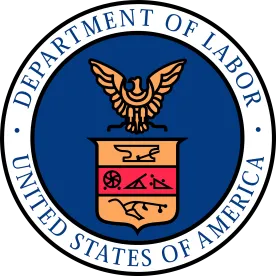On November 3, 2020, the U.S. Department of Labor’s Office of the Solicitor of Labor (the “DOL”) issued an opinion letter (the “2020 Letter”) to the Securities Industry and Financial Markets Association (“SIFMA”) stating that it would not view a conviction under foreign law as a disqualifying event under Prohibited Transaction Class Exemption 84-14 (the “QPAM Exemption”). The 2020 Letter represented a reversal of the DOL’s then longstanding position that a conviction under foreign law would disqualify a manager from being able to rely on the QPAM Exemption for a period of ten years.
However, on March 23, 2021, the DOL issued a follow-up opinion letter (the “2021 Letter”) to SIFMA withdrawing the Trump Administration DOL’s 2020 Letter because it was “issued through a flawed process and was based on a legal analysis that was inadequate to support abandoning the Department’s long standing position.”
The QPAM Exemption provides broad exemptive relief from the prohibited transaction restrictions of Section 406(a) of ERISA for transactions between a “party in interest” with respect to an ERISA plan and an investment fund or separate account holding “plan assets” of such ERISA plan (a “Plan Asset Account”), where the Plan Asset Account is managed by a “qualified professional asset manager” (a “QPAM”) and the other conditions of the QPAM Exemption are met.
At issue in the DOL’s guidance is the condition set forth in Section I(g) of the QPAM Exemption that prohibits a QPAM from relying on the exemption for a period of ten years if the QPAM (or a five percent or more owner or affiliate of the QPAM) is convicted of certain enumerated crimes that involve abuse or misuse of a position of trust or felonies described in Section 411 of ERISA[1], and whether or not a conviction under foreign law would prevent the QPAM from being able to satisfy such condition.
In the 2020 Letter, the DOL cited the plain language of Section 411 of ERISA, applicable legislative history, and persuasive Supreme Court case law, in stating its view that a conviction under foreign law would not prohibit a QPAM from relying on the QPAM Exemption if the other conditions of the exemption were satisfied. In particular, the DOL noted that Section 411 of ERISA refers to Federal, State and local offenses, courts and prosecuting officials, but that nothing therein indicates that its listed crimes include foreign equivalents. The DOL further noted that neither the language of the QPAM Exemption nor any associated guidance indicates that Section I(g) was intended to include foreign equivalents; in fact, the plain language of the QPAM Exemption expressly references concepts (e.g., “felonies,” “judgments” and “appeals”) that are generally only applicable to U.S. court systems. The DOL was also not deterred by the fact that it previously took the position that convictions under foreign law would be a disqualifying event and, in light thereof, had granted administrative exemptions to Plan Asset Account managers allowing the QPAM Exemption to be available notwithstanding a conviction under foreign law.
However, in withdrawing the 2020 Letter, the DOL stated that the legal conclusions therein “were based on an inadequate analysis of the relevant issues and legal authorities as they pertain to prohibited transaction exemptions.” In particular, the DOL stated that the 2020 Letter focused too heavily on an analysis of the reach of Section 411 of ERISA without acknowledging the differences between such provision and Section I(g) of the QPAM Exemption and their contexts. Furthermore, the 2020 Letter “glossed over issues of substantial concern” and improperly bypassed and disregarded the Employee Benefits Security Administration’s (“EBSA”) role and expertise in administering the DOL’s prohibited transaction exemption program. The 2020 Letter was issued directly to SIFMA and was not posted to the DOL’s website for over two months, which apparently bypassed a number of the DOL’s procedural requirements for issuing binding guidance, including EBSA’s advisory opinion process.
* * *
The DOL noted that it would engage in a thorough analysis of these rules while it considers additional guidance. In the interim, Plan Asset Account managers should assume that the DOL will treat convictions under foreign law as disqualifying events under the QPAM Exemption, and be prepared to have to rely on another exemption to the extent necessary. The 2020 Letter and the 2021 Letter do not have any impact on QPAM-related individual exemptions previously granted by the DOL.
For ERISA plan fiduciaries, it is important to recognize that ERISA’s fiduciary duties of prudence and loyalty apply in the context of hiring, monitoring and retaining/firing a Plan Asset Account manager regardless of whether the Plan Asset Account manager may utilize the QPAM Exemption. Accordingly, in making such decisions, ERISA plan fiduciaries should continue to diligence and take into account as appropriate whether a Plan Asset Account manager has a foreign law conviction and the possibility that Congress or the DOL could in the future revise the QPAM Exemption in a manner that would allow a Plan Asset Account manager with a foreign law conviction to utilize the QPAM Exemption.
[1] Section 411 of ERISA includes references to the following crimes: robbery, bribery, extortion, embezzlement, fraud, grand larceny, burglary, arson, murder, rape, kidnapping, perjury, and assault with intent to kill.








 />i
/>i

